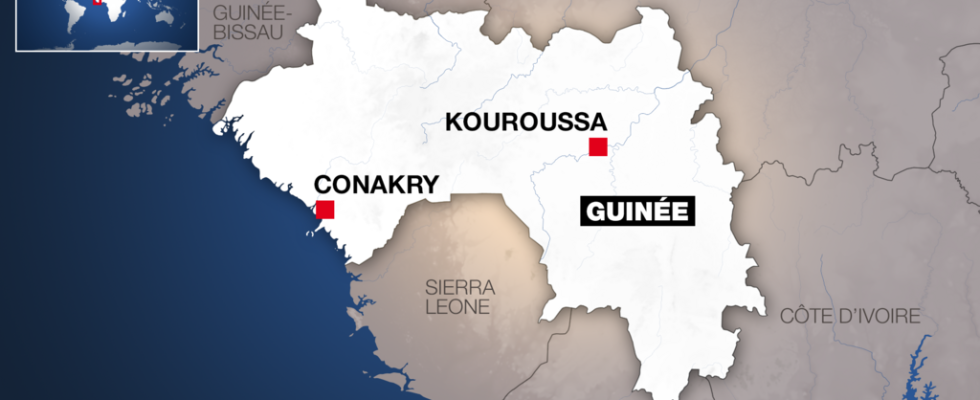It was after midnight on Monday that a powerful explosion resounded in Conakry, generating immense, glowing flames above the autonomous port of the Guinean capital. There are many injured.
1 min
With our correspondent in Conakry, Mathias Raynal
In the courtyard of Donka hospital, one of Conakry’s two university hospitals, there has been an incessant ballet of ambulances that has been parading for an hour. It is impossible to give a precise assessment for the moment, but the explosion which rang out during the night left dozens injured.
A pickup truck marked with a red cross passed through the yard. Inside the dumpster, a man, perfused, was screaming in pain. There are also many lightly injured people in the flow of people who threw themselves onto the roads to leave Kaloum.
We were sleeping when suddenly the houses were damaged. Everyone comes and goes, trying to save themselves.
Testimony of Ousmane Barry, a resident of the neighborhood
On the Fidel Castro highway, at 1 a.m., there is an exodus. Hundreds of people evacuate the area on foot, right in the middle of the expressway. A woman is carried by a teenager. Further away, a man whose foot is bleeding profusely.
The explosion shook the windows of downtown Conakry where the ministries and the presidency are located. In Coronthie, closest to the explosion, at the entrance to the peninsula, residents described apocalyptic scenes. Roofs were blown away by the explosion. Houses would have collapsed.
Access to Kaloum is filtered by the military who only allow ambulances and officials to pass. Guineans who have their loved ones in Coronthie must be patient.
And behind these dams, hundreds of people watch in the distance the fire that ignites the sky. The Coronthie district is known for housing the only fuel depot in the country. The APT, the African Petroleum Terminal. Residents have been asking for years for it to be installed outside the city.
